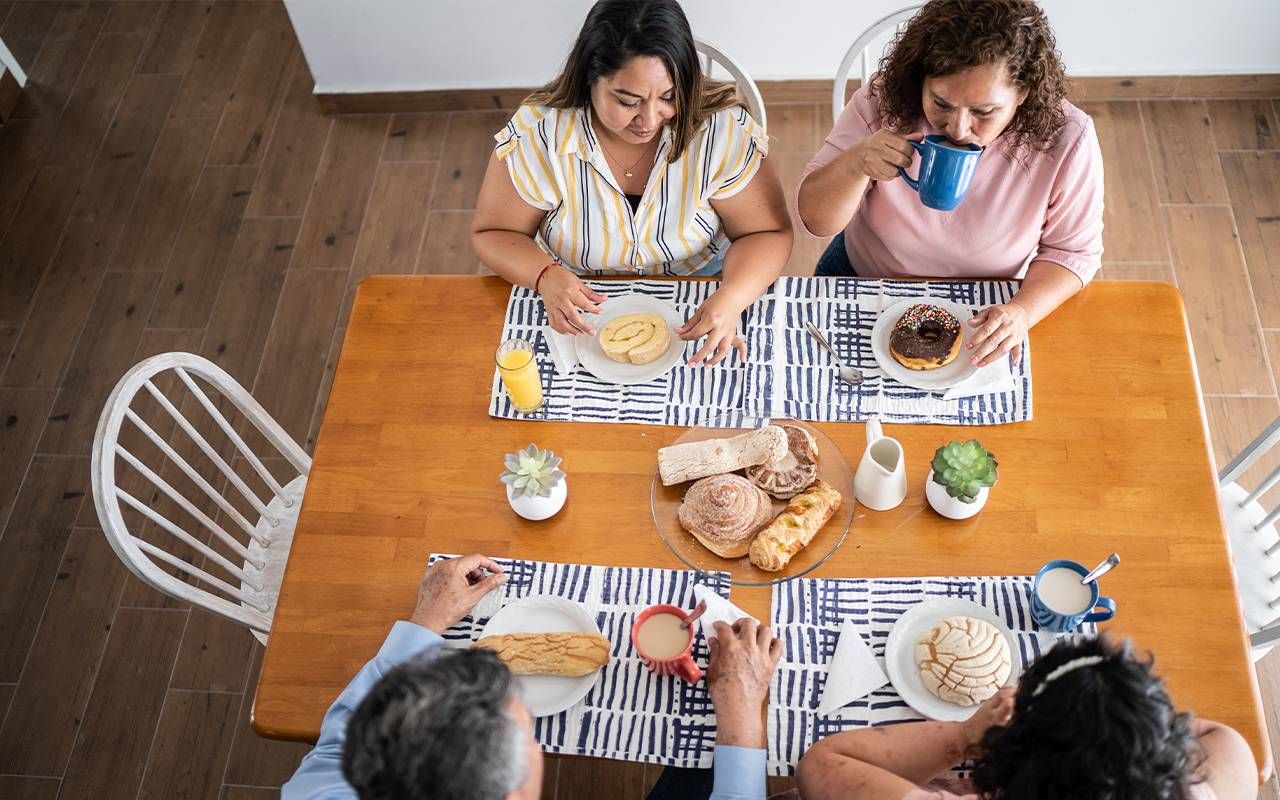Preserve Family Relationships With Courageous Conversations
The stress of a family member's illness can impact interactions. This author has created a checklist to help improve family communication.
Beyond the long list of urgent and essential demands and decisions faced by families of a loved one living through a life-threatening diagnosis, there are the non-urgent but still important needs that put additional strain on family relationships.

Often requests for help turn into reactive, sometimes grudging responses for the sake of efficiency. When one sibling feels they carry a bigger burden than others, there can be judgment or resentment. Many mothers, like me, hate to be seen as a burden or referred to as "she" in private conversations.
Many mothers, like me, hate to be seen as a burden or referred to as "she" in private conversations.
And when it comes down to it, quality interactions are lost in the conundrum. Our family struggled after my husband Larry's diagnosis of Alzheimer's. We couldn't grasp the toll his illness would have on our interactions. We wanted to be there for him, but it took some work to figure out how to be there for each other.
At a time when family matters most, individual needs and wants can quickly become tension points as emotions of sadness and loss impact listening and understanding. Yet, even when seeking help, the energy or time to give depends on a family member's life.
Living Under Stress
When you add the surrounding stress of the situation, families could be approaching a danger zone without knowing it. My family quickly recognized that the stress we were experiencing was leading us down a treacherous path. In our house, that becomes very loud statements like, "Maaahm, you are catastrophizing things again." Or "Stop yelling at me!"
These conversations moved us from reacting to interacting. We were a team — a team that was always practicing.
Solutions like weekly meetings and a family calendar for appointments were moderately successful. We were dealing with "stuff," not emotions. Often the unspoken feelings translated into how we asked for what we needed and then how we responded.
It took my daughter to say, "Mom, all we talk about is logistics these days. I just want my mommy!" I wanted to be her mommy too.
Kelly McGonigal writes in her book "The Upside of Stress" that "stress is what arises when what you care about is at stake." There is a lot at stake when a family is in crisis. Once we stopped just talking and started having courageous conversations, we were able to address the issues at hand in ways that felt supportive rather than letting tension trigger our "reactive signature."
The Need for Conversations
These conversations moved us from reacting to interacting. We were a team — a team that was always practicing. Don't let the term "conversation" create an image of an extensive formal family meeting. Sometimes they are fly-bys or in the car. Sometimes they are around a cup of tea or a glass of wine.
There is no right way to conduct them. Someone just needs to start. Once they begin, they are often ragged, frequently emotional, need to be timely and, above all, require honesty. They are an intentional pursuit of heartfelt connections at a time when all hearts are breaking.
Why "courageous?" Because these conversations require family members to agree that vulnerability is okay, that stated needs would be acknowledged, and that best efforts with good intent will be the foundation. For we all understood that Larry's dementia would be a primary factor. We also knew that emergencies demanded action, not conversation.
If you think this will take too much time or energy, think about how much time and energy it will take to mend a broken family relationship.
To increase the chances of a productive, courageous conversation, I offer this simple tool called CHECK, CHECK and DOUBLE CHECK. It is an assessment designed to be done in advance of an interaction. Think of it as preparation because it will slow you down and help you see the situation through a wider lens — yours, theirs and your loved ones.
Practicing this tool with easy conversations will strengthen your skills when hard ones need to take place.
In addition, it builds the empathy muscle that can turn a tense interaction into a caring one. This is not a problem-solving tool. Instead, it is a mental exercise that results in less talking, more listening, forgiveness and loving kindness.
These reflection questions are to be asked and answered in advance.
CHECK: Yourself
- What am I thinking and feeling?
- What do I want from this conversation?
- What do I have to give?
- What do I wish to receive?
- What do I want them to know?
CHECK: Others
- What are they thinking and feeling?
- What do they want from this conversation?
- What do they need from me?
- What do they have to give?
- What questions do I need to ask them?
DOUBLE CHECK: Person Receiving Care
When this person was their most authentic self:
- What would they want?
- How would they want to live?
- What do they want us to feel?
- What would they want us to do?
If you think this will take too much time or energy, think about how much time and energy it will take to mend a broken family relationship. Think about those conversations you may be having in your head or those that your family members might be wrestling with.
No one can read your mind. And some of that internal talk is probably best unsaid. Nevertheless, embarking on the practice of courageous conversations demonstrates the relationship you want to enhance, especially in times of distress and anxiety.


